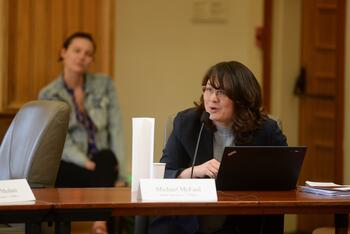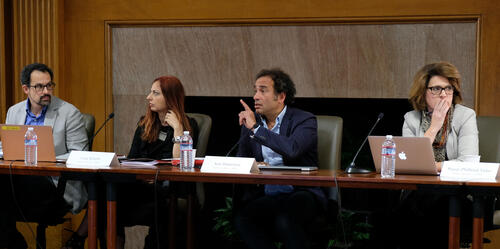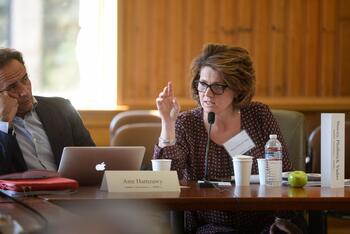Statement in Support of the Egyptian Initiative for Personal Rights (EIPR)
[The following statement was issued by a group of scholars and human rights advocates in support of the Egyptian Initiative for Personal Rights, which currently faces an escalating crackdown by authorities with the arrest of three of its senior personnel, including its executive director. If you wish to add your name to the statement, you can do so via the following link.]
We, the undersigned scholars and human rights advocates, express our deep concern at the escalating crackdown that Egyptian authorities have launched against civil society organizations in recent days. In an unprecedented move, on November 15 security forces arrested Mr. Mohamed Basheer, the administrative manager of the Egyptian Initiative for Personal Rights (EIPR), one of the most prominent and reputable civil society organizations in Egypt. Despite strong international condemnation of that action, on November 18 authorities arrested Mr. Karim Ennarah, the director of the criminal justice unit at EIPR, while launching a vicious campaign against EIPR in state-owned media and leveling false accusations against its personnel. A day later, authorities arrested EIPR Executive Director Mr. Gasser Abdel-Razek. They also leveled terrorism-related charges against Mr. Ennarah and Mr. Basheer, adding their names to a legal case that includes numerous human rights advocates.
Most concerning is that this escalation comes after EIPR hosted senior diplomats from 14 countries, including Canada, the UK, Norway, several European Union (EU) member states, as well as the EU delegation to discuss the implications of the outcome of the United States elections for the human rights situation in Egypt. We call on the Egyptian government to immediately release EIPR's personnel and halt all politically motivated investigations against civil society organizations in the country.
Signatories*
Nancy Okail, Stanford University
Joshua Stacher, Kent State University
Danny Postel, Northwestern University
Lisa Hajjar, University of California - Santa Barbara
Omar Dahi, Hampshire College
Robert Springborg, Naval Postgraduate School (ret)
Jillian Schwedler, Hunter College and the Graduate Center, CUNY
Jennifer Derr, University of California, Santa Cruz
Rochelle Davis, Georgetown University
Elliott Colla, Georgetown University
Joel Gordon, University of Arkansas
Joel Beinin, Stanford University
Marietje Schaake, Stanford University
Rim Naguib, EUME fellow, Forum Transregionale Studien, Berlin
Chris Toensing, International Crisis Group
Ted Swedenburg, University of Arkansas
Wendy Pearlman, Northwestern University
Larry J Diamond, Hoover Institution, Stanford University
Will Hanley, Florida State University
Amy Hawthorne, Project on Middle East Democracy
Fadi Awad Elsaid, University of Connecticut
Vickie Langohr , College of the Holy Cross
Ahmed Ezzat, University of Cambridge
Sherene R Seikaly, University of California, Santa Barbara
Iman Mersal, University of Alberta - Canada
Gennaro Gervasio, Roma Tre University, Rome
Enrico De Angelis, Independent Researcher
Kenza Rady
Owain Lawson, Columbia University
Michele Dunne, Carnegie Endowment for International Peace
Atef Said, University of Illinois at Chicago
Omar Cheta, Bard College
Pascale Ghazaleh, The American University in Cairo
Hanny Megally, NYU
Nicola Melis, University of Cagliari, Sardinia
Paola Rivetti, Dublin City University
Brecht De Smet, Ghent University
Francesca Biancani, Bologna University
Seppe Malfait, Ghent University
Nicola Perugini, University of Edinburgh
Alessandra Marchi, Università Cagliari
Koenraad Bogaert, Ghent University
Lucia Sorbera, The University of Sydney, NSW
Patrizia Manduchi, University of Cagliari (Italy)
John T Chalcraft, LSE
Soraya El Kahlaoui, Ghent University
Khaled Fahmy, Cambridge University
Nejla Lyons, Independent human rights researcher
Mamdouh Habashi, Socialist People's Alliance Party
Daniela Pioppi, University of Naples 'L'Orientale'
Iain Chambers, University of Naples, 'Orientale'
Ray Bush, University of Leeds
Heba Youssef, University of Brighton
Nicola Pratt, University of Warwick, UK
Magda Adly, Nadim center for rehabilitation of victims of violence
Hussein Baoumi, Amnesty International
Suzan Abd El Moty Fayyad, El Nadim Center
Ibrahim Seyam
Saerom Han, University of Aberdeen
Amel Fahmy, TADWEIN
Aziz Barkaoui, Amnesty-France
Mohamad Najem, SMEX
Nihad Aboud
Samir Khattab, Researcher
Pinar E. Donmez, De Montfort University
Mohamed Mokhtar, Human rights defender ( ECRF)
Hassan Ali, متطوعون من أجل حقوق الإنسان
Steven Heydemann, Smith College
Sara Abughazal, Regional Coordinator
Agnieszka Paczynska, George Mason University
Asmaa Elmalky
Lynn Darwich, University of Illinois at Chicago
Mohammad El Taher, Researcher and Technologist
Lorenzo Feltrin, University of Warwick
Gilbert Achcar, SOAS, University of London
Dina Matar, SOAS
Marco Lauri, Università di Macerata
Feyzi Ismail, SOAS University of London
Deniz Kandiyoti, School of Oriental and African Studies
Ziad Elmarsafy, King's College London
Barbara Pizziconi, SOAS, University of london
Dr Vanja Hamzić, SOAS University of London
Lynn Welchman, SOAS, University of London
Mohamed Noby, Lawyer
Bashir Abu-Manneh, University of Kent
Salwa Ismail, SOAS
Ramy Yaacoub, The Tahrir Institute for Middle East Policy
Veronica Ferreri, ZMO Berlin
Jens Lerche, SOAS, University of London
Rahul Rao, SOAS University of London
Andrea Teti, University of Aberdeen
John Faulkner, Administrator (retired)
Anne Alexander, University of Cambridge
Shreeta Lakhani, SOAS
Francesco De Lellis, Centro Studi sull'Africa Contemporanea - Università L'Orientale Napoli
Akansha Mehta, Goldsmiths, University of London
Cristina Flesher Fominaya, Loughborough University
Myrsini Manney-Kalogera, University of Arizona
Kim Rochette, Save the Children
Rima Majed, American University of Beirut
Aleksandra Zaytseva, Georgetown University
Ryota Jonen, World Movement for Democracy
Chiara Pagano, Università di Pavia
Paul Sedra, Simon Fraser University
Tarek Masoud, Private citizen
Christopher Hitchcock, ACRPS
Juan Cole, University of Michigan
Feyzi Ismail, SOAS University of London
Zachary Lockman, New York University
Yasmin Elsouda, SOAS University of London
Dalia Ghanem, University of California, Davis
Charlie Lawrie, Johns Hopkins SAIS
Sophie Chamas, SOAS, University of London
Kerem Nisancioglu, SOAS University of London
Jo Tomkinson, SOAS, University of London
Imran Jamal, SOAS
Saffo Papantonopoulou, University of Arizona
Suad Joseph, University of California, Davis
Fayrouz Yousfi, Gent University
Abdulrahman El-Taliawi, University College London
Anthony Alessandrini, City University of New York
Yair Wallach, SOAS
Huseyin Silman, GLOPOL
Alfredo Saad Filho, King's College London
Sami Zemni, Ghent University
Maher Hamoud, Ghent University
Omar Jabary Salamanca, ULB
Sharan Grewal, College of William & Mary
Michael Chamberlin, Human Rights Defender in Mexico
Mattia Giampaolo, CeSPI
Liliana Toledo Guzmán, University of Arizona
Keith Cook, University of Arizona
Ifigeneia Mourelatou, UCL
Katharina Grüneisl, Durham University
Zoe Basiouri, Aristotle University
Hani Sayed, American University in Cairo
Jason Brownlee, University of Texas at Austin
Charles W. Dunne, Arab Center Washington DC
Francis Fukuyama, Center on Democracy, Development, and the Rule of Law, Stanford University
Jessica Winegar, Northwestern University
Michael Michaelides, University of Florida
Catherine Jenkins, SOAS, University of London
Muhammad Ebaid, The Egyptian Commission for Rights and Freedoms (ECRF)
Aleś Łahviniec, European Humanities University, Lithuania-Belarus
Sarah Rifky, MIT
Aymen Zaghdoudi, ARTICLE 19
Tania Kaiser, SOAS
Chenjia Xu, SOAS
Miriam Gastélum, UCL
Lars Peter Laamann, SOAS, University of London
Alessandra Mezzadri, SOAS
Andrew Newsham, SOAS, University of London
Myat Ko Ko, Yangon School of Political Science
Mayur Suresh, SOAS, University of London
Frances Grahl, SOAS
Sadek Hamid, Independent Academic
Andrea Cornwall, SOAS
Judith E. Tucker, Georgetown University
Georges Khalil, EUME, Forum Transregionale Studien Berlin
William Aceves, California Western School of Law
Karima Laachir, Australian National University
Aida Seif El Dawla, El Nadim Center
Ruba Salih, SOAS
Shereif Elroubi
Hadi Enayat, SOAS
Karen Rignall, University of Kentucky
Ahmed Gad, Amnesty International
Taher Mokhtar, Medical Doctor
Hassan Osman , University of Minya
Vivienne Matthies-Boon, University of Amsterdam
Sigrid Vertommen, Ghent University
Frances Grahl, SOAS
Rebeca Robertson, SOAS
Alla Kos, Responsible AI
Mahfouz Eltaweel
Peter Hill, Northumbria University, Newcastle-upon-Tyne
Ahmed Naji, BMI
Ahmed Abbes, CNRS, Paris, France
Kholoud Saber Barakat, Catholic University of Louvain (UCLouvain)
Assaf Kfoury, Boston University
Reda Eldanbouki, Women's Center for Guidance and Legal Awareness
Mona Hamed Imam, El Nadeem Center
Tania Tribe, SOAS
Sherif Azer, University of York, UK
Omnia El Shakry, University of California, Davis
Manjeet Ramgotra, SOAS University of London
Boris Kilgarriff, SOAS
Mohamef Lotfy, Egyptian Commission for Rights and Freedoms
Lorenzo Casini, University of Messina
Yousra Hassenien
Christian Achrainer, Philipps University Marburg
Sara Mohani, Journalist
Michael McFaul, Stanford University
Abbas Milani, Stanford University
Karina Sarmiento
Democracy for the Arab World Now (DAWN)
Nathan Grubman, Stanford University
Azza Soliman, Lawyer
Jacqueline Charretier, Human rights defender
Mohammad Hossam Fadel, University of Toronto Faculty of Law
Necla Tschirgi, Kroc School of Peace Studies, University of San Diego
Elisa Massimino, Georgetown University Law Center
Stuart Schaar, Brooklyn College, CUNY
Alya Khemakhem, USC
Daniel Marwecki, University of Hong Kong
Brad Fox, The Graduate Center, CUNY
Karim Reda, ناشط سياسي و مدون مستقل
Dolores Soto
Irene Gendzier , Boston University (Prof. Emeritus)
Basma El Husseiny
Ahmed Ramy, Egyptian Pharmaceutical Syndicate
Sherif Gamal, IT Specialist
Ahmed Melad, Lawyer
Khaled Mansour, Independent Consultant
Richard Falk, Queen Mary University London
Wagdy Abdel Aziz, مركز الجنوب لحقوق الانسان
Laila Soueif, Cairo University
Matt Gordner, University of Toronto
Emad Shahin, Academic
Khalda Yassin, Egyptian citizen
Céline Cantat, Sciences Po Paris
Ahmed Said, ECRF
Ismail Ammar, Student
Amr Tajuddin, Egyptian citizen
Giovanni Piazzese, Freelance journalist and Ph.D. researcher
Lamia Radi, Journalist
Sameh Elbarky, Alaraby Aljadeed newspaper
Magda Boutros, Brown University
Céline Lebrun Shaath, Harvard Kennedy School of Government
Riya Al'sanah, Who Profits Research Center
Nesting Badawi, The American University in Cairo
Nadia Kamel
Shaimaa El-Banna, Committee for Justice
Zoé Carle, Université Paris 8
ahmed altigani, IRFC
Ali Hegazy, Royal College of Obstetricians & Gynecologists
Hakim Abdelnaeem, Artist
Khaled Sobhy
Tanya Monforte, McGill University
Emma Frampton, SOAS
Nathalie Bernard-Maugiron, Institut de Recherche pour le Développement
Jens Hanssen, University of Toronto
Manar Tantawie, استاذ بمعهد هندسي خاص
Dee Smythe, Centre for Law & Society, University of Cape Town
Manar Mohsen
Ranjit Singh, University of Mary Washington
Vasuki Nesiah, New York University
Pascal Menoret, Brandeis University
Mona Khneisser, University of Illinois at Urbana Champaign
Yasser Munif, Emerson College
Corinna Mullin , CUNY
Alice Finden, SOAS
Alfredo Ortiz Aragón, University of the Incarnate Word
Amira Abdelhamid, University of Sussex
Magdi El Gawhary
Daniel Watson, University of Sussex
Maha Alaswad, Georgetown University
Andrea Brock, University of Sussex
Hani Faris, University of British Columbia, Canada
Noam Chomsky, University of Arizona
Saghar Sara, Collaborative Social Change
Ziad Abu-Rish, Bard College
Sarah El-Kazaz, SOAS
Sara Kermanian, University of Sussex
Heather Allansdottir, University of Bifrost
Louiza Odysseos, University of Sussex
Adam Ramadan, University of Birmingham
Karem Yehia, Journalist freelance
M. Abbas Yongacoglu, University of Ottawa (Emeritus Professor)
Liliane Daoud, Journalist
Rossella Merullo, Humboldt University
Juan M. Amaya-Castro, Universidad de los Andes (Bogotá - Colombia)
Beth Baron, CUNY
Dina Fergani, University of Toronto
David Kramer, FIU
Ghayth Omar, Alnasser and Partners
Lori Allen, SOAS University of London
Azzah Ahmed, UCLA
Derek Ludovici , City University of New York
Farah Al Shami, Arab Reform Initiative
Rosemary Sayigh, American University of Beirut
Muhammad Ali Khalidi, City University of New York - Graduate Center
Mohammed Mostafa, Intersection Association for Rights and Freedoms
Ali Ugurlu, Columbia University
Wafaa Hefny, Professor of English Literature
Lamis al Nakkash, Cairo University
Nadje Al-Ali, Brown University
Yezid Sayigh, Malcolm H. Kerr Carnegie Middle East Center
Patrizia Manduchi, University of Cagliari
Daniela Potenza, Università degli studi di Napoli "L'Orientale"
Giulia Cimini, University of Bologna
Brendan O’Duffy, Queen Mary University of London
Alessandro Buontempo, Università Statale di Milano
Tony Outang, SOAS
Sophie Chapman, SOAS
Chiara Cascino, University of Naples "L'Orientale", Italy
Teodora Boanches, SOAS
Caterina Roggero, Università degli Studi di Milano-Bicocca
Laura Vale, SOAS
Martina Biondi, University of Perugia
Felix Henson, SOAS
Caitlin Callies, SOAS
Fez Endalaust, SOAS, University of London
Charlotte Paule, SOAS
Hanna Uihlein, SOAS University of London
Emily Bayliss, SOAS
Lauren Feechan, SOAS
Giuseppe Acconcia, Padova University
Matthew Holt
Faiz Sheikh, University of Sussex
James White, SOAS, University of London
Yusra Siddique
Lucy Roberts, SOAS
Leona Li, SOAS, University of London
Amory Lumumba, SOAS
Virginia Ruosi, SOAS
Amanda Kutch, SOAS
Luisa Hausleithner, SOAS
Jack McGinn, London School of Economics
Alessandro Cane, SOAS
Ottilia Mackerle, SOAS
Ishrat Sanjida, SOAS
Flora Butler, SOAS
Max La Fosse, SOAS
Callum Cafferty, SOAS University of London
June Derz, SOAS
Doris Duhennois, SOAS
KP Sarvaiya, SOAS
Madhubanti Bhaduri, School of Oriental and African Studies
Debora Del Pistoia, Amnesty International
Sarah Zellner, University of Oxford
Laura Janicka, SOAS
Liana Parry, SOAS
Ella Spencer, SOAS
Clara Kristola Truc, SOAS
Oliver Hampden, SOAS
Evangelin Dupret, SOAS
Sara Bertotti, SOAS University of London
Alada Taylor, SOAS
Aoife Delaney, SOAS
Hazel Ke, SOAS
Sophie Snook, SOAS
Alexander Curtis, School of Oriental and African Studies (SOAS)
Lachlan Kenneally, SOAS
Sara Birch, Brighton University, UK
Gabrielle Nuttall, SOAS
Sascha Gill, SOAS, University of London
Filippo Angeli, SOAS
Renata Rouvinen, SOAS
Ruth George
Joseph Edwards, SOAS
Muhsin Chang, SOAS
Emmy Toulson , SOAS
Margot Chesne, SOAS
Holly Haynes, SOAS
Georgia Jones, SOAS
Maliha Sohail, SOAS
Sascha Kröger, SOAS
Silvia Sanchez, SOAS
Joshua Young, SOAS
Anna Etter
Rebekka Muth, SOAS
Chao Ping Yi, SOAS
Cristina Stanescu, SOAS
Raimond Christian Dasalla, SOAS
Daisy Webster-Kincaid, SOAS
Hisham Parchment, SOAS, University of London
Anthea Frank, SOAS
Martina Censi, Università di Bergamo
Lucy Mair, Garden Court North Chambers
Malina Mihaiu, SOAS
Olivia Smith, SOAS
Polina Volkova, SOAS University of London
Kay Zhang
Julia Llaurado, SOAS
Yukari Ishii, SOAS
Alessandro Gatti Bonati
Lornelle Gayle-Harris, SOAS
Gaelle Poncelet, SOAS
Helena Buckley, SOAS
William Tod, SOAS
Mario Arulthas, SOAS
Taher Saad
Judith Heimbach, SOAS
Chelsea Krajcik, SOAS
Tanzidah Islam, SOAS
Ilyas Saliba, WZB Berlin Social Science Center
John Peterson, SOAS
Lyna Belmekki, SOAS
Francesco Vacchiano, University Ca' Foscari, Venice
Aaron G. Jakes, The New School
Joshua Ong, SOAS
Emmy Toulson, SOAS
Alex Schumann, SOAS
Caitlin Pether, SOAS
Jamie Corson, SOAS
Noah Lepawsky
Nayeema Rahman, SOAS
Katherine Saunders, SOAS, University of London
Ioana Ille, SOAS
Taha Metwally, Founder, ANKH association
Nijmi Edres, Georg-Eckert-Institut für internationale Schulbuchforschung
Serena Tolino, University of Bern
Lutz Oette, Centre for Human Rights Law, SOAS, University of London
Samia Bano, SOAS University of London
Laura Hammond, SOAS University of London
Sinan Antoon, New York University
Richard Alexander, SOAS University of London
Isabel Toledo Guzmán, Secretaría de Educación Pública SEP
Andrew Antoine, SOAS University
Michael Reinsborough, School of Oriental and African Studies
Jeffery Lin, PEN Hong Kong, Univ. of Hong Kong Cultural Leadership Youth Academy
Thabo Huntgeburth, SOAS
Nadine Wassef, Ain Shams University
Ilyas Saliba, WZB Berlin Social Science Center
Ceri Gibbons, Researcher
Dishan Abrahams, SOAS
Laura Bier, Georgia Tech
Veli Yadirgi, SOAS
Genevieve Ladd, SOAS
Daphne Muscat, SOAS, University of London
Hannah Abbott, SOAS University
Sasha Hubbard, SOAS
Zaeema Ali, SOAS
Shamita Ray, SOAS
Ilaria Bertocchini, SOAS
Alexandria Pilides, SOAS
Viktor da Silva, SOAS
Alaina Hall, SOAS
Tanja Tabbara, Rosa Luxemburg Stiftung
Raffaele Cattedra, Università di Cagliari
Jingfei Zhang, SOAS
Clive Rosewarne, Latrobe University
Ugo GRAGNOLATI, Université Paris 1 Panthéon-Sorbonne
Natasha Kaluzynski, SOAS
Naila Awwad, Women Against Violence
Rani Jana, SOAS University of London
Catriona Drew, School of Law, SOAS University of London
Samuel Smith-Stanley, SOAS
Sarah Guennoun, SOAS
Maya Shukla, SOAS
Rosa Lynch-Northover, SOAS
Laurence Davis, University College Cork
Sarah Irving, Edge Hill University
Neve Gordon, Queen Mary University of London
Charles Melville, Pembroke College Cambridge
Sara Salem, LSE
Richard Tapper, SOAS University of London (Emeritus Professor)
Eugene Rogan, University of Oxford
Michael Mason, London School of Economics and Political Science
Hilary Kilpatrick, Independent scholar
Hendrik Kraetzschmar, University of Leeds
Catherine Cobham, University of St Andrews
Birgit Poopuu, Tallinn University
Lewis Turner, Newcastle University
Anthony Gorman, University of Edinburgh
Rayane Anser, University of Warwick- Department of Politics and International Studies
Alessia Carnevale, Sapienza University of Rome
Shelagh Weir, Former British Museum
Mona Baker, University of Manchester
Sharri Plonski, Queen Mary University of London
Jorgen Nielsen, University of Birmingham
Guy Burton, Vesalius College
Sherry Dawoud
James Godfrey, Birkbeck, University of London
James Dickins, University of Leeds
Marilyn Booth, University of Oxford
Matthew Hedges, Durham University
Hoda Mohieldin, Cairo university
Celestine Hanssens, SOAS
Mandy Turner, University of Manchester, UK
Wafaa Farhat, SOAS
Laure Guirguis, Aarhus University, Denmark
Cecilia Martinez, SOAS UNIVERSITY
Cıgdem Balım, Indiana University (Emerita)
Nadim Houry, Arab Reform Initiative
Jeremy Wildeman, uOttawa
Line Khatib, McGill
Irene Fernández-Molina, University of Exeter
Emmy Toulson, SOAS
Vicky Blake, UCU
Georgia Hunt, SOAS
Celia Kerslake, University of Oxford
Daniel Vitkus, University of California, San Diego
Miray Philips, University of Minnesota
Antonino Adamo, CNR
Antonio Pezzano, Università di Napoli "L'Orientale"
Eve Caplowe, SOAS
Gunvor Mejdell, University of Oslo
Lord John Alderdice, Harris Manchester College, University of Oxford
Noemie Bachellerie, SOAS
Sami Zubaida, Birkbeck, University of London
Mark Ayyash, Mount Royal University
David Wearing, University of Southampton
Nurcin Ileri, Forum Transregionale Studien, EUME Program
Bonnie Bates, Carleton University
Mariam Iskajyan, SOAS Development Studies
Marta Bellingreri, Independent researcher
Nick Riemer, University of Sydney
Sandra Nicholls, SOAS
Nathalie Bernard-Maugiron, Institut de recherche pour le développement
Youssef Mohieldin, University Professor
Jacob Høigilt, University of Oslo
Sana Tannoury-Karam, Forum Transregionale Studien
Anni Vendelin, SOAS
Kaoutar Ghilani, University of Oxford
Sophie Abramovici, SOAS
Karim El Taki, University of Cambridge
Leo Zeilig, University of London
Maria Sussex, University of Sussex
Zoe Peppitt, SOAS
Jonathan Purkis, Independent academic and freelance consultant
Nicole Crisp, University of Arizona
Loes Debuysere, Ghent University
Leila Schneps, CNRS France
Nachoua Azhari, Freelance translator.
Kathleen Ryou
Kelly McBride, IFRC Psychosocial Centre
Sergey Shpectorov, University of Birmingham, UK
Frances S. Hasso, Duke University
Barry Simon, Caltech
Ophélie Mercier, Ghent University
Hesham Sabry, Qadreen Egypt
Dina El Henawy, Qadreen
Omar Sedky
Mehdi Labzaé, Maison des Sciences de l'Homme
Paul Grassin, Université Paris 1 Panthéon-Sorbonne
Garth Frankland, Leeds Left Unity
Mathilde Zederman, Sciences Po Toulouse
Marianne Saddier, Paris 1 Panthéon-Sorbonne
Bjørn Olav Utvik, University of Oslo
Katerina Dalacoura, LSE
Dominique Maliesky, Sciences Po Rennes
Giuseppe Restifo, Independent Historian Researcher
Nils A. Butenschøn, Norwegian Centre for Human Rights, Faculty of Law, University of Oslo
Ece Onderoglu Bayazit, SOAS
Dubois Simon, IFPO
Karim Eid-Sabbagh, Independent Researcher
Owoh Henry, SOAS
Ben Radley, University of Bath
Genevieve Ladd, SOAS
Agnès Aubry, University of Lausanne
Adele Oliver, SOAS
Ricarda Ameling, FU Berlin
Elliot Shirnia, SOAS
Aderemi Medupin, CEE Coalition
Hyaah Chowdhury, SOAS Student
Azzah Ahmed, UCLA
Laura Moreno Vela
*Institutional affiliations listed for identification purposes only
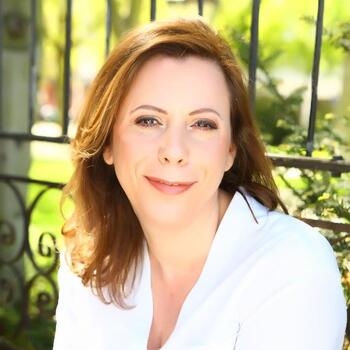




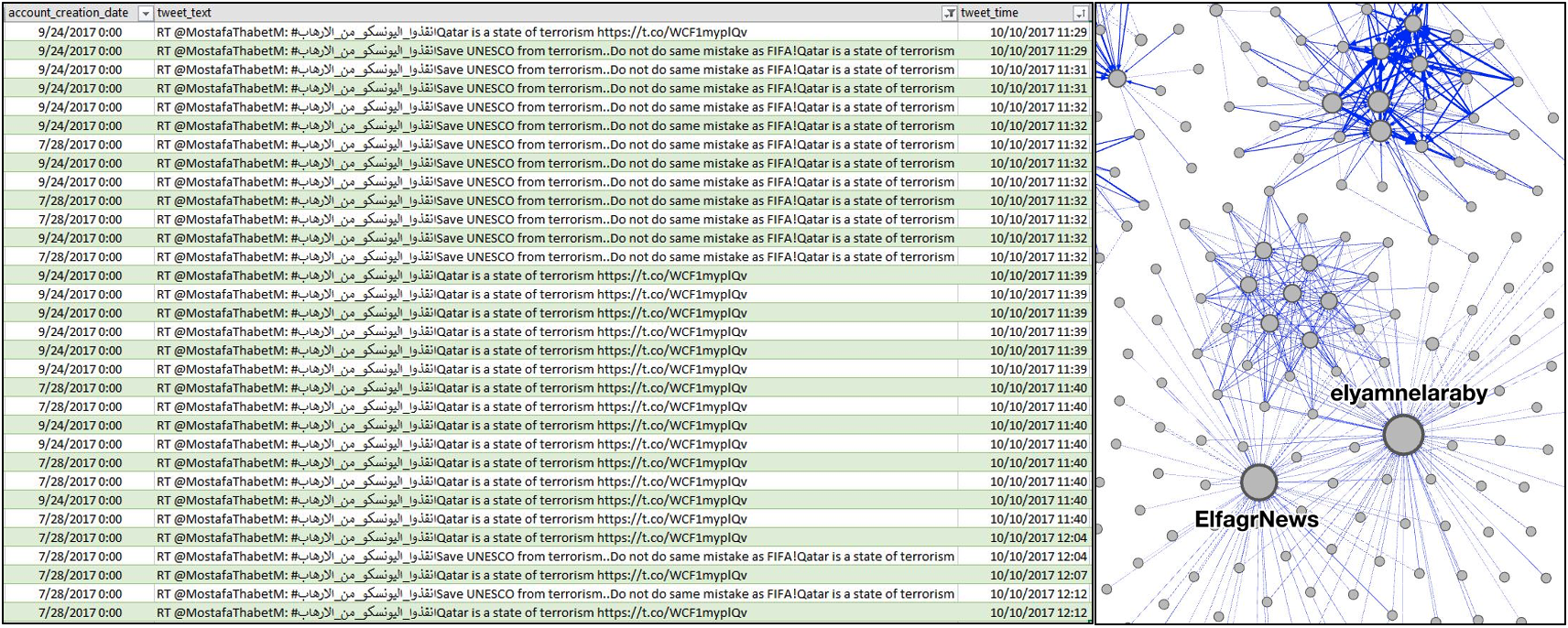


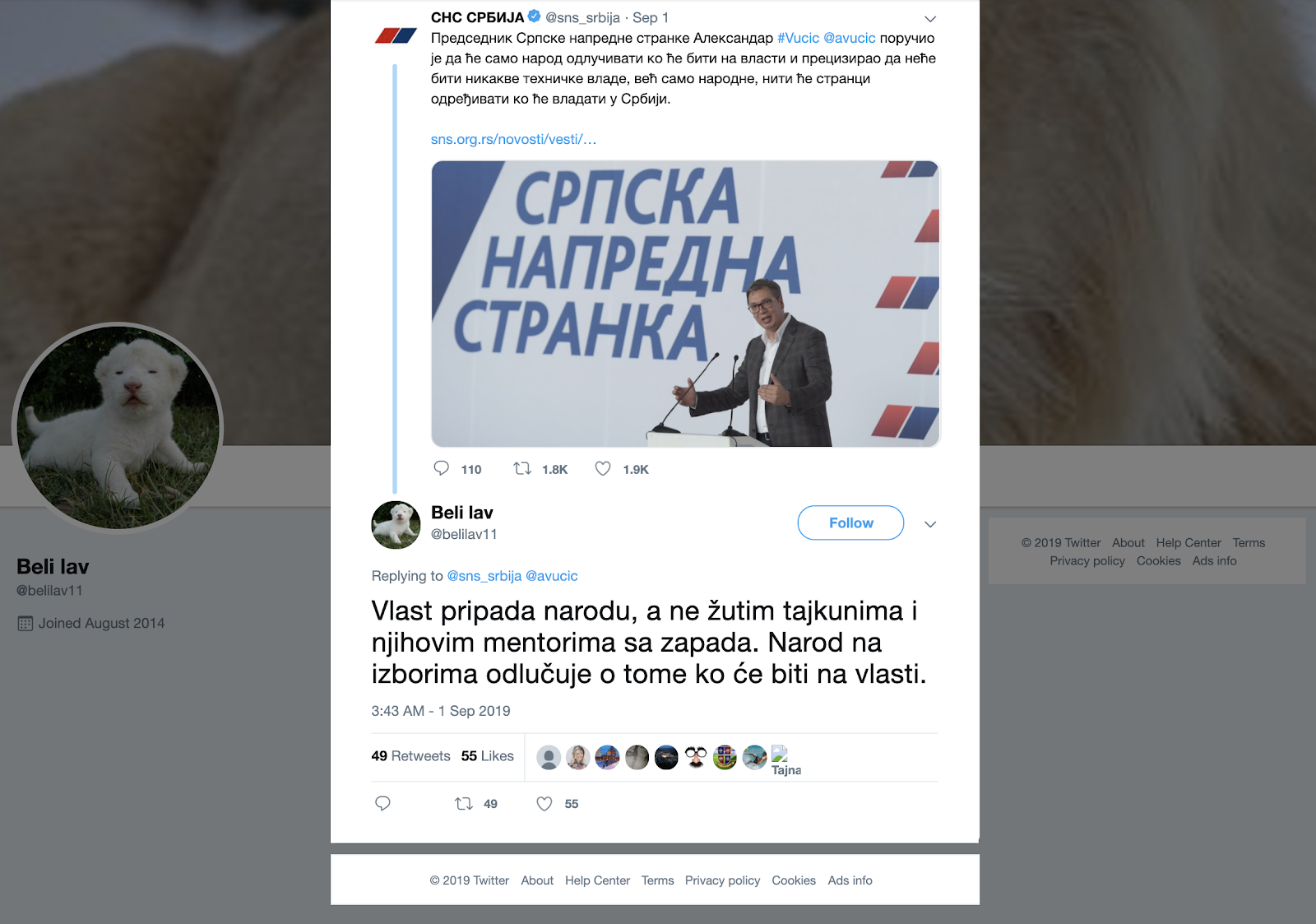
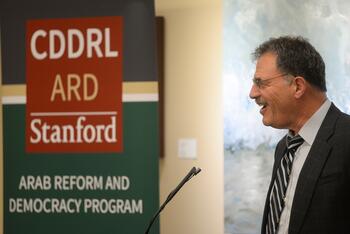
 Farah Al-Nakib (right) and Michael Herb (left)
Farah Al-Nakib (right) and Michael Herb (left)

